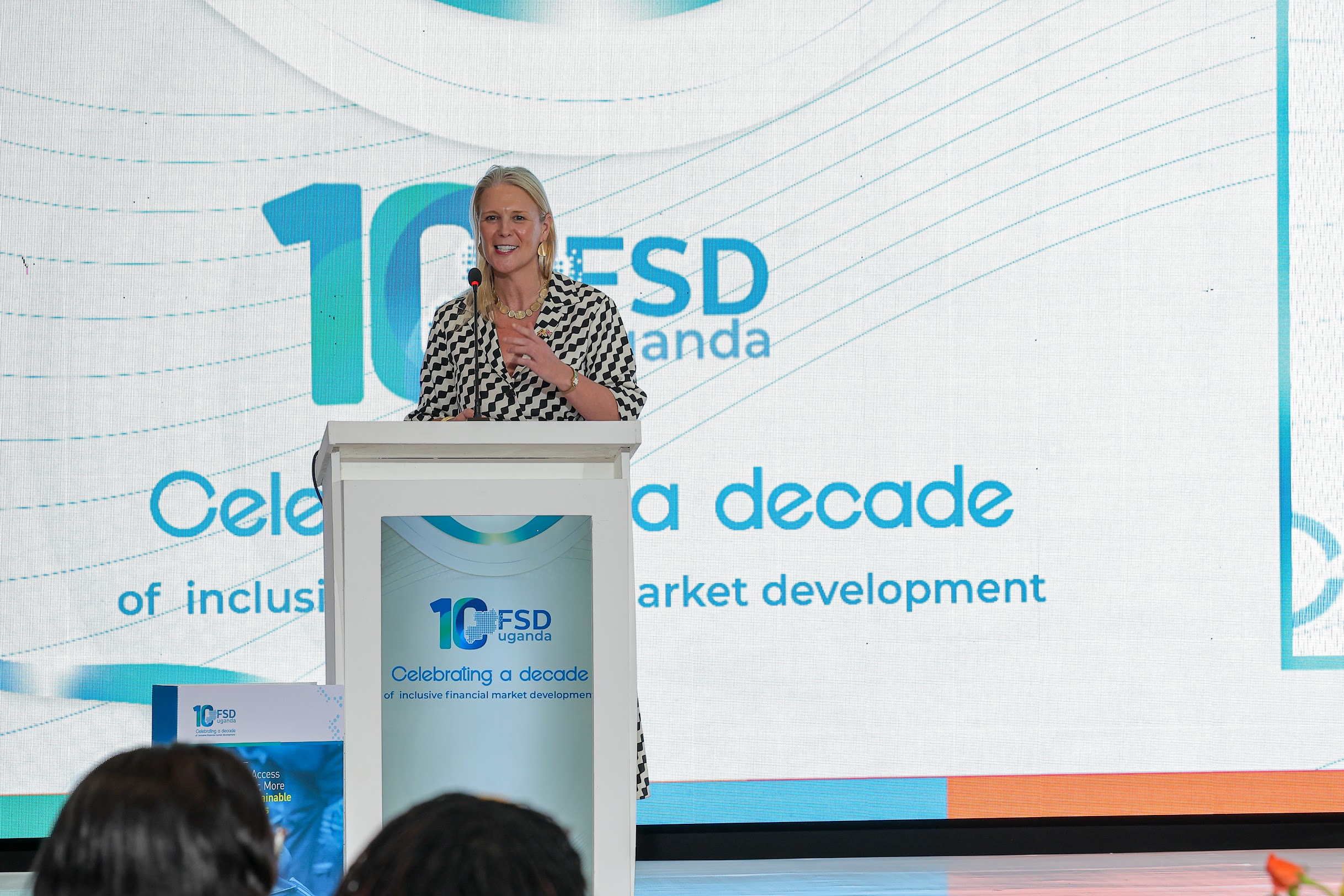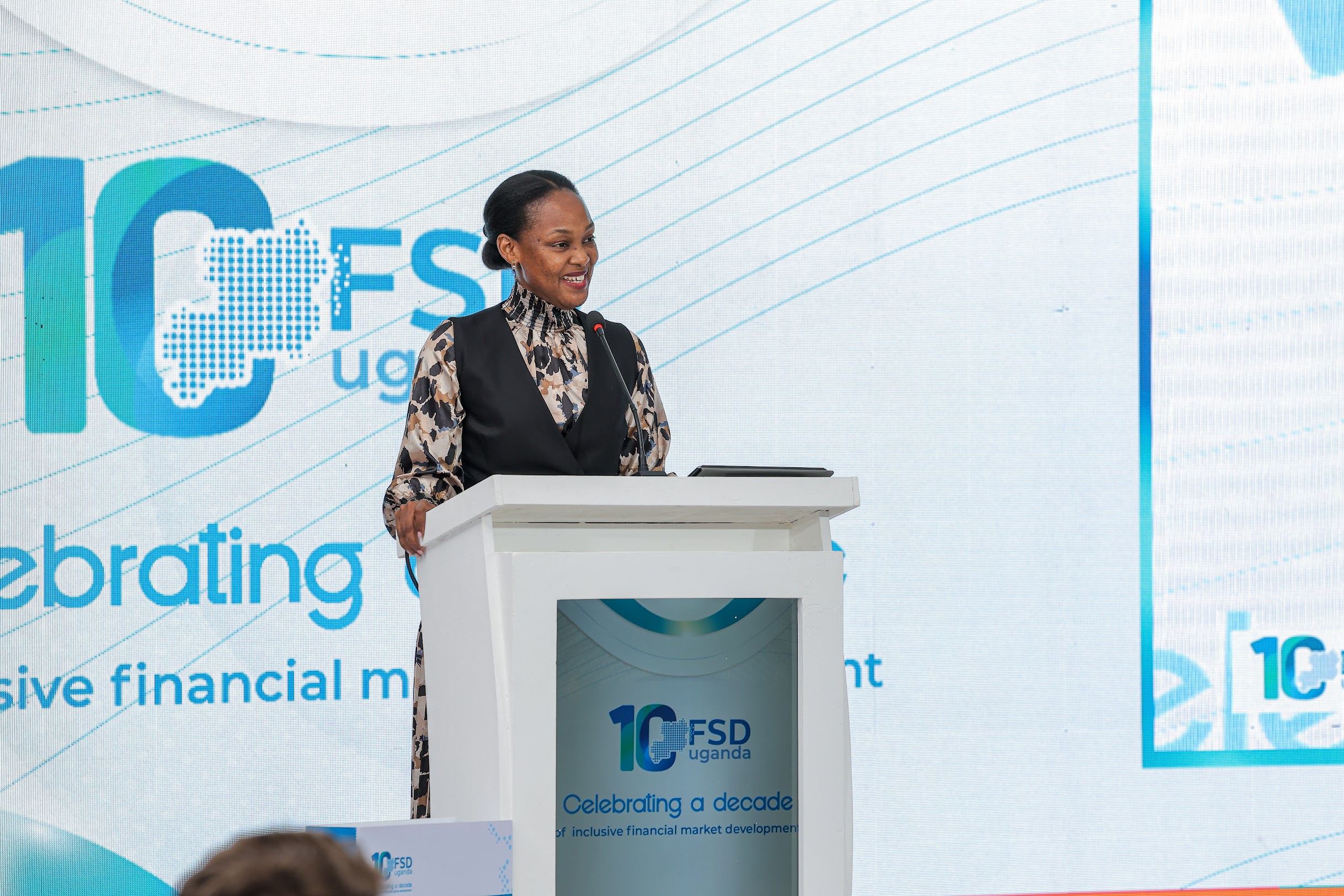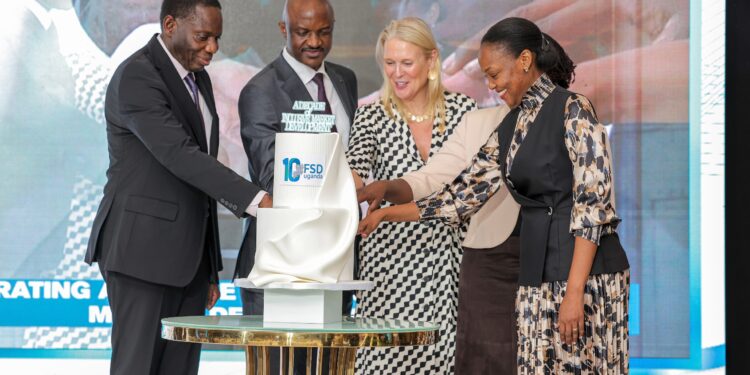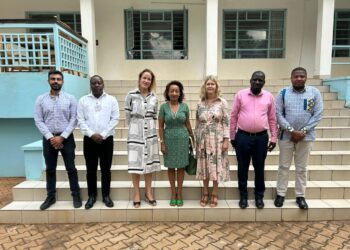The United Kingdom and Financial Sector Deepening Uganda (FSD Uganda) on Tuesday marked a decade of transformative work in Uganda’s financial sector, celebrating major milestones in financial inclusion, digital innovation, and enterprise growth.
The 10th anniversary event, held at Sheraton Kampala Hotel, brought together government leaders, development partners, funders, and financial sector stakeholders.
British High Commissioner H.E. Lisa Chesney MBE commended the ten-year journey as a model of partnership and impact, noting that Uganda’s financial landscape today is “almost unrecognisable” compared to 2012.
“When the UK launched the Financial Inclusion Programme in 2012, only 52% of Ugandan adults had access to financial services,” she said. “Today, 88% of adults are financially included, with 77% using formal services. That is serious progress.”

Chesney applauded the UK’s investment of £12.4 million into creating FSD Uganda, saying it laid the groundwork for one of Africa’s most dynamic financial inclusion success stories. She credited innovations such as mobile money—now responsible for more than 60% of all financial transactions—and the doubling of licensed financial institutions for reshaping access to finance.
Behind the national statistics, Chesney said, are real lives transformed through practical and accessible financial tools. She narrated the story of Grace, a dairy farmer who once relied solely on informal cash-based sales.
“Thanks to a fintech solution supported by FSD Uganda, Grace can now use digital milk-sale records as proof of income,” Chesney shared. “Every litre she sells builds her credit history. This is inclusion in action — empowerment, dignity, and opportunity.”
Over the past decade, FSD Uganda has expanded financial access to 1.6 million individuals—nearly half of them women—and improved financial services for at least 144,000 small enterprises. Its work has included strengthening regulation, promoting digital payments, supporting Africa’s first shared agent banking network, and de-risking private sector innovations in remittances, SACCO payments, and refugee finance.
Although the UK has ended bilateral funding for FSD Uganda, Chesney reaffirmed continued commitment through FSD Africa, British International Investment, and technical partnerships. “Our collaboration is ongoing,” she said. “Together with the Bank of Uganda, the Ministry of Finance, and others, we are working to expand access to credit, support fintech innovation, and unlock Uganda’s access to climate finance.”
FSD Uganda Board Member Ms. Emma Mugisha, speaking on behalf of the Board, thanked funders, government, and partners for enabling the organisation’s achievements.
“Your presence here is a testament to the collective commitment that has shaped FSD Uganda’s first decade,” she said. “We extend our deepest gratitude to the Government of Uganda for providing an enabling environment, and to our funders for entrusting us with the resources that have driven the inclusive finance agenda.”
Mugisha recognised the Foreign, Commonwealth & Development Office (FCDO), Gates Foundation, Mastercard Foundation, European Union, and TradeMark Africa among the funders who have supported FSD Uganda’s growth. She stressed that the organisation’s success is anchored in strong governance.
“Our board’s responsibility has been to safeguard the mission, ensure accountability, and provide strategic leadership,” she noted. “Every shilling entrusted to us must deliver value.”

She highlighted FSD Uganda’s dual governance structure: programme oversight through advisory committees and institutional oversight ensuring compliance with donor expectations and Uganda’s regulatory standards.
Mugisha paid special tribute to the Technical Investment Committee overseeing the Micro and Small Enterprise Recovery Fund, which has provided affordable credit to more than 130,000 small businesses—70% women-led—through 22 Tier 3 and Tier 4 financial institutions.
“This is a powerful testament to what targeted investment and strong oversight can achieve,” she said.
She also commended the Deal Flow Facility Advisory Council, which has helped high-potential businesses attract $8.2 million in investment capital.
Acknowledging both current and former Board Directors, Mugisha said their leadership had strengthened FSD Uganda’s credibility as a neutral, catalytic market facilitator. She also praised the staff:
“You are the engine behind our work. Your professionalism and resilience have carried this institution through transition and growth.”
As Uganda faces rapid urbanisation, youth population pressures, climate challenges, and a fast-evolving digital economy, both Chesney and Mugisha emphasised the need for deeper collaboration and innovation.
“The next decade will bring new challenges,” Chesney said, “but it will also bring immense opportunity for resilience and ingenuity.”
Mugisha concluded with a forward-looking message:
“The financial sector continues to evolve, and Uganda must evolve with it. The next ten years will require responsible innovation, deeper collaboration, and a shared resolve.”
Do you have a story in your community or an opinion to share with us: Email us at editorial@watchdoguganda.com












